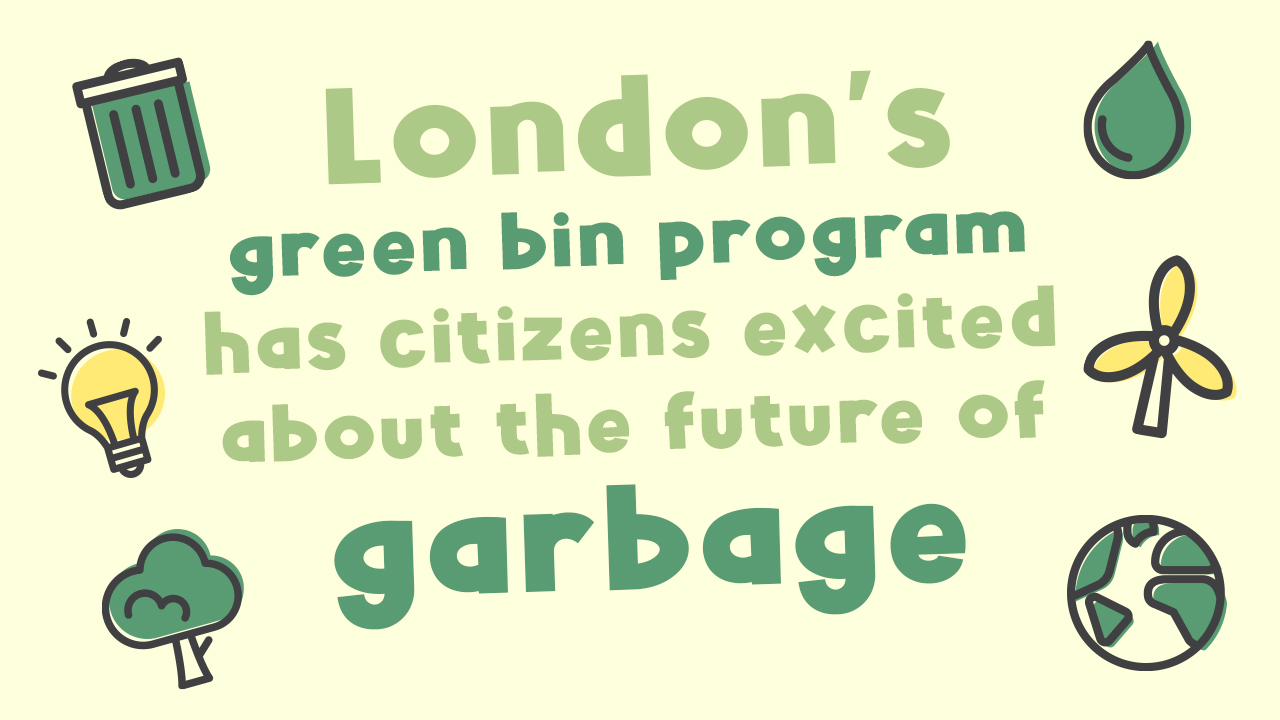London's green bin program has citizens excited about the future of garbage
 CREDIT: FSU PUBLICATIONS AND COMMUNICATIONS DEPARTMENT
CREDIT: FSU PUBLICATIONS AND COMMUNICATIONS DEPARTMENTOn April 23, 2019, a climate emergency was declared by the City of London as a result of its commitment to protecting our economy, our ecosystems, and our community from climate change. The entire city was asked to get involved with the design and rollout of London’s green bin program. Jamie Dardarian, residential sustainable program specialist from the London Environmental Network shared what a functioning green bin program can bring to the city.
“You are getting so much out of the green bin program. The waste can be turned back into valuable soil rather than just sitting in a landfill wasting away taking up space,” Dardarian said. “It creates problems for people downstream. A lot of Indigenous and Native reservations are seeing liquid garbage running into waterways and into groundwater soils.”
There will be somewhat of a learning curve for residents of London to get used to the program but Dardarian is confident that once the crooks of the initiative are addressed it will become second nature.
“You’ll get a green bin and then you just put any of your food scraps and organic waste into the bin, and then it goes out just like a regular garbage collection. You place it on the curb and a green bin truck will come and take it to a composting facility.”
London’s original plan was to divert 60 per cent of the waste that ends up in the landfill by 2022. Unfortunately, supply chain issues in the automotive and truck sector exacerbated by recent geopolitical situations and high inflation resulted in a shortage of collection vehicles to start the green bin program as planned. The City of London is now predicting the roll to happen mid-2023.
The delays of the program were caused by unavoidable global issues but Dardarian felt there could have been more done in the way of education.
“I mean, we would have like them to put a bit more effort and incentive, even if it were just around education in getting ready for the program, because there hasn’t been a green bin program, there’s going to be a learning curve.”
Although some of the wrinkles of the program are still being ironed out, some of the waste included in the green bin program could include:
- Food waste
- Spoiled paper
- Cooking oils and grease
- Household plants
- Pet waste
- Diapers, sanitary products
- Yard waste
- Making it easier for the public to accept bi-weekly garbage collection
- Providing minor landfill cost savings
- Further reducing greenhouse gas emissions
“There are just so many opportunities within waste management as soon as people start to see that, I think garbage gets a lot more exciting.”
The take-home message comes across loud and clear: We need to get serious and excited about what is happening with our garbage and household waste materials. Dardarian continually drove home the point that our waste is not evaporating. The green bin program that London is rolling out is a bandwagon we should all be jumping on and rolling with.
“There are so many opportunities to get involved in garbage: material reuse, recycling or even with green bin, your waste gets turned into nutrient rich and valuable soil,” Dardarian said. “We as a society have to have a little more caution toward where we are putting these waste materials, and what we can do to make them more useful in the future.”
Here within the college demographic of international students, mature students and young people that are leaving their parents’ house for the first time, it’s about getting everybody on the same page education-wise. That’s when great and green miracles can happen.
















